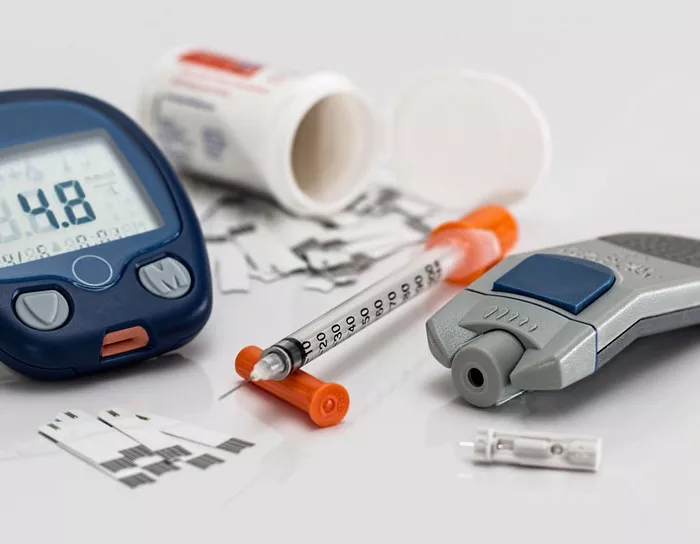Type 1 diabetes is a chronic autoimmune condition that affects millions worldwide. It occurs when the immune system attacks and destroys the insulin-producing beta cells in the pancreas, leading to insufficient insulin production and subsequent high blood sugar levels. Management of type 1 diabetes requires a multifaceted approach, including medication, lifestyle modifications, and regular monitoring. Among the various medications available, determining the most effective treatment for each individual is crucial for achieving optimal glycemic control and preventing long-term complications. In this article, we delve into the diverse array of medicines used in the management of type 1 diabetes, exploring their mechanisms of action, efficacy, safety profiles, and considerations for personalized treatment plans.
Insulin: The Cornerstone of Type 1 Diabetes Management
Insulin therapy remains the cornerstone of treatment for individuals with type 1 diabetes. Since the pancreas no longer produces insulin, exogenous insulin replacement is essential to regulate blood sugar levels and prevent hyperglycemia-related complications. Several types of insulin are available, categorized based on their onset, peak action, and duration of effect. Rapid-acting insulin analogs, such as insulin lispro, aspart, and glulisine, mimic the physiological insulin response to meal intake, promoting glucose uptake by cells. Long-acting insulin analogs, such as insulin glargine and detemir, provide basal insulin coverage throughout the day, mimicking the background insulin secretion in non-diabetic individuals.
The choice of insulin regimen depends on various factors, including individual lifestyle, eating patterns, activity level, and insulin sensitivity. Multiple daily injections (MDI) and continuous subcutaneous insulin infusion (CSII) using insulin pumps are two common approaches to insulin administration. MDI involves the use of rapid-acting and long-acting insulins in combination, allowing for flexibility in mealtime dosing and basal insulin coverage. In contrast, insulin pumps deliver rapid-acting insulin continuously, with the option to adjust basal rates and administer bolus doses as needed.
Advancements in Insulin Delivery Systems
Recent advancements in insulin delivery systems have revolutionized diabetes management, offering greater convenience, precision, and flexibility for patients. Continuous glucose monitoring (CGM) devices provide real-time glucose readings, enabling individuals to monitor their blood sugar levels continuously and make informed treatment decisions. Integrated insulin pump systems combine CGM technology with insulin delivery, allowing for automated insulin adjustments based on sensor glucose levels, a feature known as hybrid closed-loop systems or artificial pancreas technology. These innovative devices aim to mimic the physiological function of the pancreas more closely, reducing the burden of diabetes management and improving glycemic control.
Adjunctive Therapies for Type 1 Diabetes
In addition to insulin therapy, several adjunctive medications are used in the management of type 1 diabetes to improve glycemic control, reduce insulin requirements, and mitigate the risk of complications. These medications target various pathways involved in glucose metabolism, insulin secretion, and insulin sensitivity. Some of the commonly prescribed adjunctive therapies include:
1. Metformin: Metformin is a first-line oral medication for type 2 diabetes that may also benefit individuals with type 1 diabetes, particularly those who are overweight or insulin-resistant. It works by reducing hepatic glucose production, increasing insulin sensitivity in peripheral tissues, and improving glucose uptake by cells. While metformin alone is insufficient to control blood sugar levels in type 1 diabetes, it can be used as an adjunctive therapy to reduce insulin doses and enhance glycemic control.
2. GLP-1 Receptor Agonists: Glucagon-like peptide-1 (GLP-1) receptor agonists, such as liraglutide and exenatide, are injectable medications used in the treatment of type 2 diabetes. They stimulate insulin secretion, suppress glucagon release, slow gastric emptying, and promote satiety, leading to improved glycemic control and weight management. Although not approved for use in type 1 diabetes, some studies have investigated the potential benefits of GLP-1 receptor agonists as adjunctive therapy in this population, particularly for individuals with suboptimal glycemic control despite intensive insulin therapy.
3. SGLT2 Inhibitors: Sodium-glucose cotransporter-2 (SGLT2) inhibitors, such as empagliflozin and dapagliflozin, are oral medications approved for the treatment of type 2 diabetes. They work by inhibiting glucose reabsorption in the kidneys, leading to increased urinary glucose excretion and lowering of blood sugar levels. Emerging evidence suggests that SGLT2 inhibitors may offer benefits beyond glycemic control, including cardiorenal protection and reduction in cardiovascular events. While their role in type 1 diabetes management is still under investigation, clinical trials have demonstrated improvements in glycemic control and reduction in insulin doses with adjunctive SGLT2 inhibitor therapy.
4. Pramlintide: Pramlintide is an injectable medication that mimics the effects of amylin, a hormone co-secreted with insulin by pancreatic beta cells. It slows gastric emptying, suppresses glucagon secretion, and enhances satiety, leading to reduced postprandial glucose excursions and improved overall glycemic control. Pramlintide is used as an adjunctive therapy in individuals with type 1 diabetes who have suboptimal glycemic control despite optimized insulin therapy.
Individualized Treatment Approaches
The management of type 1 diabetes is inherently complex and requires a personalized approach tailored to each individual’s unique needs, preferences, and clinical characteristics. While insulin therapy remains the cornerstone of treatment, adjunctive medications may be considered in select cases to optimize glycemic control and reduce the risk of complications. The choice of medication regimen should take into account factors such as age, comorbidities, duration of diabetes, insulin sensitivity, hypoglycemia risk, and patient preferences.
Shared decision-making between healthcare providers and patients is essential to ensure that treatment goals are aligned with individual preferences and values. Regular monitoring of blood sugar levels, HbA1c, and other relevant parameters is necessary to assess treatment efficacy, adjust medication regimens, and prevent long-term complications. Additionally, ongoing education and support are crucial to empower individuals with type 1 diabetes to self-manage their condition effectively and make informed decisions regarding their health.
Conclusion
In conclusion, the management of type 1 diabetes requires a comprehensive and individualized approach that encompasses insulin therapy, lifestyle modifications, and adjunctive medications when appropriate. While insulin remains the primary treatment modality, adjunctive therapies may offer additional benefits in certain cases. By integrating advances in medical technology, pharmacotherapy, and personalized care, healthcare providers can help individuals with type 1 diabetes achieve optimal glycemic control, improve quality of life, and reduce the risk of long-term complications.

























